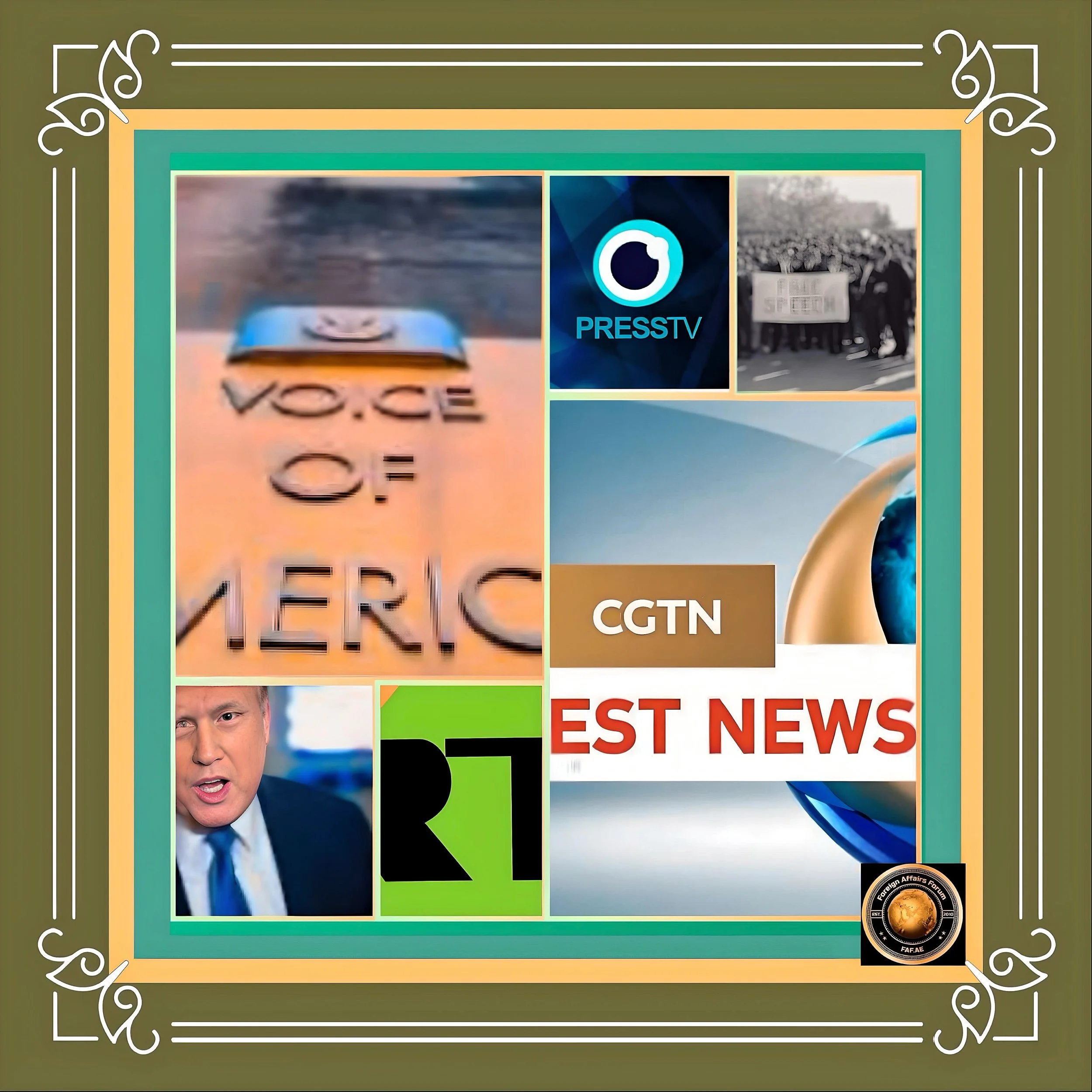Redefined in US - The Normalization of Cowardice: Institutional Silence in the Face of Power
Introduction
In an era where science and public health face unprecedented political pressures, the reluctance of significant medical associations to forcefully challenge scientifically unsupported claims raises profound questions about moral courage in contemporary American society.
FAF examination explores the psychology, historical context, and social dynamics behind what appears to be an increasing tolerance for institutional timidity in the face of potential retaliation.
The Retreat of Professional Organizations
Recent developments in American public health governance have created a concerning dynamic. Robert F. Kennedy Jr., confirmed as Secretary of Health and Human Services in February 2025, brings with him a history of controversial health claims, including the repeatedly debunked assertion that “autism comes from vaccines.”
While over 15,000 doctors initially signed a letter opposing his nomination, there appears to be a growing reluctance among significant medical associations to challenge his most scientifically unsupported views directly.
This institutional caution comes amid a climate where scientists at federal health agencies have expressed dread about the new administration’s approach to public health.
The fear of retaliation is a driving factor, creating what some observers describe as a chilling effect on scientific discourse and advocacy.
When organizations tasked with protecting public health fall silent in the face of potential threats, it raises fundamental questions about professional ethics and institutional courage.
Defining Modern Cowardice
To understand the current phenomenon, we must first clarify what constitutes cowardice in a professional and institutional context. Traditionally, cowardice has been defined as “the absence of courage – thinking only of oneself and not of the impact of our actions on others.”
In political terms, cowardice manifests when “those with great political influence are protected at the expense of those with no political clout.”
This starkly contrasts political courage, which happens “when those with little political influence are protected at the risk of offending those with political power.”
By these definitions, institutions that remain silent about potentially harmful health misinformation to avoid political repercussions may exhibit professional cowardice.
The Psychology of Institutional Retreat
Social Dominance and Self-Preservation
Social dominance theory offers valuable insights into why institutions might acquiesce to political pressure. The theory examines how group-based social hierarchies maintain themselves through mechanisms that include institutional discrimination and behavioral asymmetry.
When a new administration is willing to use power punitively, organizations often adapt by aligning with the dominant group’s narrative or avoiding confrontation.
Research suggests that when individuals perceive a low probability that their behavior will result in long-term benefits, they steeply discount future outcomes.
For medical associations, the calculus becomes whether the potential good of speaking out outweighs the immediate risks to funding, access, or institutional stability.
The Evolution of Moral Courage in Public Discourse
The reluctance to be labeled a coward was once a powerful social motivator. One source notes that cowardice was historically considered “the most insulting word known to man.”
Yet this taboo appears to have weakened considerably. One writer observes that “cowardice” and “self-respect” have largely disappeared from public discourse, replaced by concepts like “self-esteem.”
This shift may reflect broader cultural changes in how we understand moral virtue.
Where previous generations might have prioritized courage as an essential virtue, contemporary discourse often emphasizes tolerance, inclusivity, or strategic compromise – qualities that can sometimes be used to rationalize inaction in the face of moral challenges.
Historical Parallels and Contemporary Context
Patterns of Institutional Behavior Under Pressure
History provides numerous examples of institutions gradually accommodating themselves to political pressure.
In systems transitioning toward more authoritarian governance, professional organizations typically follow a pattern: initial resistance, strategic silence, and active cooperation with the new order.
The search for historical parallels leads to consideration of post-Napoleonic France, late Roman empire dynamics, and Europe after World War I – periods when elites adjusted to new political realities by tempering their opposition to preserve their status.
While the United States has not experienced trauma comparable to World War I, the polarization and institutional distrust of recent years may be creating similar psychological conditions.
The Triumph of Tribal Loyalty Over Conscience
A particularly troubling dimension of contemporary cowardice is “the displacement of personal conscience by tribal loyalty.”
In this framework, actions once universally recognized as wrong are defended not on their merits but through appeals to partisan loyalty. This represents a form of moral relativism where ethical standards become subordinate to political alignment.
The phenomenon creates a self-reinforcing cycle: as more individuals and institutions prioritize group loyalty over independent moral judgment, the social cost of moral courage increases.
When standing on principle becomes exceptional rather than expected, the incentives for institutional courage diminish further.
The Particular Vulnerability of Scientific Institutions
Science’s Dependence on Political Patronage
Scientific and medical institutions face unique vulnerabilities in this environment. Their work depends heavily on government funding, regulatory approval, and public trust – all resources that can be threatened by political opposition.
When an administration signals hostility toward certain scientific consensus positions, these organizations must calculate the moral implications of silence and their continued ability to function effectively.
Vaccine makers’ stocks reportedly dipped when news of RFK Jr.’s nomination broke, illustrating the immediate economic consequences of political appointments.
For medical associations, the prospect of an HHS Secretary who has promoted views contrary to scientific consensus creates a genuine dilemma: speak out and risk retribution that could hamper their broader mission or remain strategically silent on specific issues to preserve their ability to influence others.
The Erosion of Expert Authority
The current situation reflects a longer-term erosion of expert authority in American society.
When Kennedy claims he wants to “return health bodies to ‘evidence-based science and medicine’” while simultaneously promoting scientifically unsupported claims, he exploits a widespread suspicion of traditional expertise.
This skepticism toward expertise has been cultivated through what some observers describe as “a barrage of falsehoods, half-truths, personal invective, threats, xenophobia, national-security scares, religious bigotry, white racism, exploitation of economic insecurity, and a never-ending search for scapegoats.”
In such an environment, scientific organizations may calculate that confrontation will further undermine their credibility with segments of the public who already distrust them.
Potential Paths Forward
Rediscovering Institutional Courage
Addressing the normalization of cowardice requires rethinking how institutions understand their ethical responsibilities. Historical examples of courage under pressure can provide valuable templates.
Organizations might consider establishing more apparent ethical red lines – positions or principles they commit to defending regardless of political pressure.
Creating solidarity networks among multiple institutions could also distribute the risk of speaking out.
When numerous organizations take a stand together, the political cost of retaliating against any single one increases substantially.
Reframing the Narrative
Part of the challenge lies in how courage and cowardice are framed in contemporary discourse.
When standing for scientific evidence is portrayed as “elitist,” while accommodating misinformation is portrayed as “listening to alternative perspectives,” the language creates perverse incentives.
Medical and scientific organizations might work to reclaim the moral high ground by emphasizing how their mission connects to widely shared values—protecting vulnerable populations, particularly children who depend on public health measures for their well-being.
By making the human impact of health misinformation more visible, they can help clarify the moral stakes involved.
Conclusion
The apparent reluctance of significant medical associations to forcefully challenge scientifically unsupported claims from positions of power reflects complex institutional calculations about risk, influence, and mission.
Yet this strategic silence comes with profound costs to public health, institutional integrity, and democratic norms.
The normalization of institutional cowardice represents more than just a failure of particular organizations – it signals a broader shift in how American society conceptualizes moral responsibility.
When fear of retaliation consistently outweighs professional ethics and public service, the foundations of a functioning democracy are undermined.
Rekindling a cultural expectation of courage – particularly from those entrusted with protecting public welfare – may be essential for addressing specific issues like vaccine misinformation and preserving the moral infrastructure necessary for democratic governance.
As one observer noted, examining the phenomenon of widespread moral cowardice leads to a disturbing conclusion: “It’s not just that far too many Americans don’t see that what is being done is wrong.
It’s that so many do but have decided that glum passivity, fatalism, and cowardice are a proper American response”.





